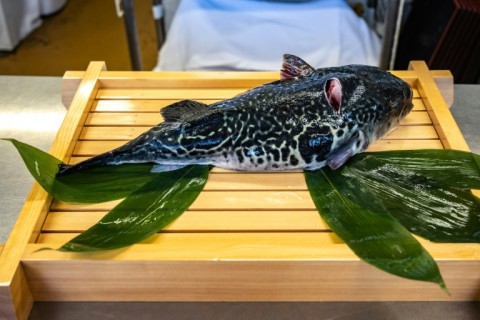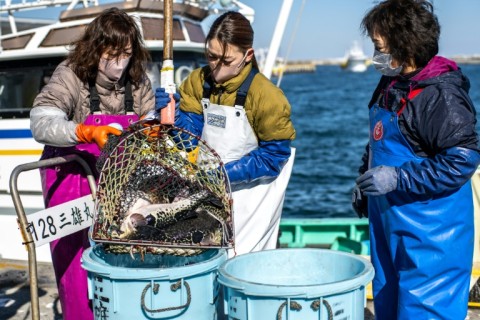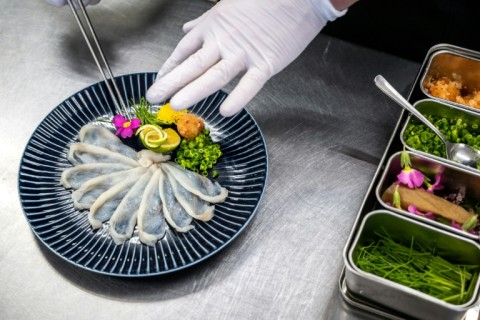
SOMA - The pufferfish filling nets in Fukushima are a delicacy that can kill if wrongly prepared. But to a community devastated by a 2011 nuclear disaster, they are also a lifeline.
In the 12 years since the meltdown at the Fukushima Daiichi plant caused by a deadly tsunami in northeastern Japan, "there hasn't been much good news", fisherman Masahiro Ishibashi told AFP.
The cooperative he belongs to has faced tight fishing restrictions, and consumers have avoided produce from the region over radiation concerns.
And as the plant operator prepares to release wastewater treated to remove radioactive elements into the sea, the fishing community fears further reputational damage.

So when tiger pufferfish -- an expensive variety of the notorious "fugu" -- began to appear in their catch, they saw an opportunity.
Fugu is often served raw at high-end restaurants in Japan, where chefs must hold a licence proving they can safely slice around organs that contain a lethal poison.
Now, each morning at Matsukawaura port, 50 kilometres north of Fukushima Daiichi, boat crews heave buckets overflowing with fat, dark-spotted tiger pufferfish into the arms of waiting family members.
Five years ago, not much tiger pufferfish was caught off Fukushima, but local authorities say warmer-than-usual water temperatures may have helped the species thrive.
The increased catch is, however, mainly down to the employment of longline techniques learnt from fugu fishermen in southwestern Yamaguchi, which helped the region's fisheries bring in nearly three tonnes of tiger pufferfish in 2019.
That figure soared ten-fold in 2022, after official restrictions on fishing were lifted following extensive radiation testing.

Kanno, also an experienced seafood chef, is "very happy" about the fugu boom.
"We used to serve snow crab in the winter. This place was famous for it. But since the disaster, fishermen haven't been able to catch as much" because they can't leave Fukushima waters, he told AFP.
Having carefully removed the deadly parts of a tiger pufferfish, he rustled up the classic dishes of crispy fried fish and thinly sliced, translucent raw sashimi.
Kanno says the delicacy "is delicious and can be served at a good price".
But he fears the fallout from the upcoming water release.
"I'm very worried about whether the fishing industry in this region will ever make a comeback if the water is released," he said.

